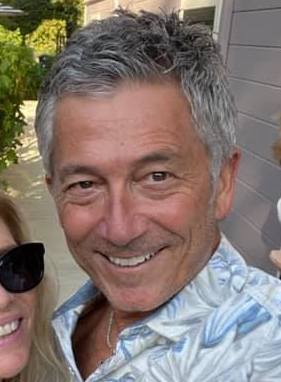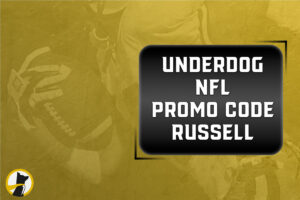The deception with tact,
Just what are you trying to say?
You’ve got a blank face,
Which irritates
Communicate, pull out your party piece
You see dimensions in two
State your case with black or white
But when one little cross leads to shots,
grit your teeth
You run for cover so discreet
Why don’t they
Do what you say, say what you mean
oh, baby
One trade leads to another
You told me something wrong,
I know I listen too long but then
One trade leads to another
A little over a year ago, a trade that was front and center here in The Land of Pleasant Living was one involving Terrell Owens. First he was a Raven then he wasn’t. Today, we collectively breathe a sigh of relief knowing that he’ll never wear a Ravens uniform.
 10. Bubba Smith for Raymond Chester ~ In 1973, Chester was traded to Baltimore for Bubba Smith after being named to the Pro Bowl in each of his first 3 seasons. Smith had suffered a knee injury in 1972 when he became entangled with a first down marker after making a play near the sidelines. After the season ending injury, Smith was never quite the menacing force that he had been during his all-star years of ‘70 – ‘72. Chester was a four time Pro Bowler, but unfortunately for Baltimore, each time as a member of the Oakland Raiders. He later returned to the Raiders and finished his career there in 1981. In his 11 seasons, Chester had 364 receptions for 5,013 yards, a 13.8 yards per catch average and 48 TD’s.
10. Bubba Smith for Raymond Chester ~ In 1973, Chester was traded to Baltimore for Bubba Smith after being named to the Pro Bowl in each of his first 3 seasons. Smith had suffered a knee injury in 1972 when he became entangled with a first down marker after making a play near the sidelines. After the season ending injury, Smith was never quite the menacing force that he had been during his all-star years of ‘70 – ‘72. Chester was a four time Pro Bowler, but unfortunately for Baltimore, each time as a member of the Oakland Raiders. He later returned to the Raiders and finished his career there in 1981. In his 11 seasons, Chester had 364 receptions for 5,013 yards, a 13.8 yards per catch average and 48 TD’s.
7. Jack Marin for Elvin Hayes ~ Prior to the 1971-72 season, the San Diego Rockets franchise moved to Houston, where adoring fans still remembered Elvin Hayes from his college days. The Rockets also brought in a new coach, Tex Winter — a coach that Hayes often clashed with. A disgruntled Hayes averaged 25.2 ppg, 10th in the NBA, and the Rockets missed the playoffs for the third straight year. Shortly after the season ended, Houston traded Hayes to Baltimore for Jack Marin and future considerations. Bullets Coach Gene Shue already had Wes Unseld playing center, and he realized that Hayes was at his best in the power forward position, where he could capitalize most on his scoring and rebounding skills. Hayes welcomed the move, and he responded by averaging 21.2 ppg in 1972-73, helping Baltimore to the Central Division title. The following season the Bullets moved to Landover and played as the Capital Bullets. Later on during the 1977-78 season after posting a modest 44-38 record, the Bullets caught fire in the playoffs eliminating the Atlanta Hawks, the San Antonio Spurs, and the Philadelphia 76ers en route to the NBA Finals against the Seattle SuperSonics. The Bullets were World Champions that season and chants of EEEEEEEEEEEEEE filled the air. Jack Marin lasted only one season in Houston.
ppg, 10th in the NBA, and the Rockets missed the playoffs for the third straight year. Shortly after the season ended, Houston traded Hayes to Baltimore for Jack Marin and future considerations. Bullets Coach Gene Shue already had Wes Unseld playing center, and he realized that Hayes was at his best in the power forward position, where he could capitalize most on his scoring and rebounding skills. Hayes welcomed the move, and he responded by averaging 21.2 ppg in 1972-73, helping Baltimore to the Central Division title. The following season the Bullets moved to Landover and played as the Capital Bullets. Later on during the 1977-78 season after posting a modest 44-38 record, the Bullets caught fire in the playoffs eliminating the Atlanta Hawks, the San Antonio Spurs, and the Philadelphia 76ers en route to the NBA Finals against the Seattle SuperSonics. The Bullets were World Champions that season and chants of EEEEEEEEEEEEEE filled the air. Jack Marin lasted only one season in Houston.
4. Curt Schilling, Pete Harnisch & Steve Finley for Glenn Davis ~ In arguably the worst trade in Baltimore sports history, in 1991 the Orioles traded a pitcher that would prove to be serviceable for several years (Harnisch 95-72 3.89 ERA since leaving), a productive outfielder would become an all star outfielder and still produces at the major league level (Steve Finley .280 average, 244 home runs and 915 RBI’s since leaving) and a pitcher that has been one of the game’s most dominant over the past 8 years (Schilling 162-111 3.30 ERA and a Cy Young since leaving). All of this for a player that cost the Orioles over $10 Million in salary who produced only a .227 average, 24 home runs and 85 RBI’s in his 3 season as an Oriole. Things could have been so different in the 90’s for the O’s had they not traded for this injury prone and heartless player on the field.
3. John Elway for Chris Hinton and Mark Hermann ~ When No. 1 draft pick John Elway refused to play in Baltimore for then head coach Frank Kush, a reportedly looped Bob Irsay playing the role of high roller in Las Vegas, traded the draft rights to the Stanford quarterback to Denver in exchange for quarterback  Mark Hermann, the rights to offensive tackle Chris Hinton and a first-round pick in the 1984 draft, which ended up being guard Ron Solt. The trade was done unbeknownst to then GM Ernie Accorsi who to this very day swears that Elway was not going to go through with his threat to pursue a baseball career. Accorsi maintains that Elway would have become a Colt possibly saving the franchise in Baltimore. Elway as we all know became a legend in Denver, where he won more games (148) than any quarterback in NFL history and led the Broncos to five Super Bowl appearances, winning two. He finished his 16-year career ranked second in passing yardage (51,475), third in TD passes (300) and first in fourth-quarter comebacks (47). Hinton played the first seven of his 13 NFL seasons with the Colts. He was selected to seven Pro Bowls and chosen All-Pro five times. Hermann, a journeyman quarterback who threw 36 interceptions and just 16 TD passes in his 11-year career, played just five games for the Colts in the first of his two stints with the team. Solt played in the NFL for nine seasons, including the first five with the Colts.
Mark Hermann, the rights to offensive tackle Chris Hinton and a first-round pick in the 1984 draft, which ended up being guard Ron Solt. The trade was done unbeknownst to then GM Ernie Accorsi who to this very day swears that Elway was not going to go through with his threat to pursue a baseball career. Accorsi maintains that Elway would have become a Colt possibly saving the franchise in Baltimore. Elway as we all know became a legend in Denver, where he won more games (148) than any quarterback in NFL history and led the Broncos to five Super Bowl appearances, winning two. He finished his 16-year career ranked second in passing yardage (51,475), third in TD passes (300) and first in fourth-quarter comebacks (47). Hinton played the first seven of his 13 NFL seasons with the Colts. He was selected to seven Pro Bowls and chosen All-Pro five times. Hermann, a journeyman quarterback who threw 36 interceptions and just 16 TD passes in his 11-year career, played just five games for the Colts in the first of his two stints with the team. Solt played in the NFL for nine seasons, including the first five with the Colts.
2. Milt Pappas for Frank Robinson ~ In nine seasons with the Orioles, Milt Pappas never had a losing record, winning between 13 and 16 games each year from 1959-1965. In December of 1965, at the age of 26, Pappas was traded to the Cincinnati Reds in a blockbuster deal that brought Frank Robinson to Baltimore. The Reds had written off Robinson as “an old thirty” yet fans in Cincinnati cried outrage at the deal, which made it difficult for Pappas to ever adjust in the Queen City. He struggled in his first season in the National League, posting a 4.29 ERA, the worst of his career, but managed a winning record at 12-11. Frank of course had a tremendous career with the Orioles winning the Triple Crown and MVP in 1966, leading the Orioles to World Championships in ‘66 & ‘70 and World Series appearances in ‘66, ‘69-’71. Slight advantage to the Orioles, don’t you think? For the record, the Reds also received prospects Jack Baldschun and Dick Simpson in addition to Pappas.
 1. The Los Angeles Rams for The Baltimore Colts ~ The St. Louis Rams franchise in its entire history dating back to Cleveland has had only six owners. One of the most famous owners Daniel F. Reeves was responsible for the teams move to Los Angeles in 1946. Reeves would later on (1971) pass away from cancer and the franchise would go to his lifelong friend William A. Barnes, who only holds the team for a year and then Robert Irsay claims the teams rights from the Reeves estate. In 1972, a history-making move took place when Baltimore Colts owner Carroll Rosenbloom trades the Baltimore franchise to Robert Irsay in exchange for the Rams. The transaction was completed and announced on July 14th. This move undoubtedly started a sequence of events over an 11 year period that would ultimately change sports in Baltimore forever.
1. The Los Angeles Rams for The Baltimore Colts ~ The St. Louis Rams franchise in its entire history dating back to Cleveland has had only six owners. One of the most famous owners Daniel F. Reeves was responsible for the teams move to Los Angeles in 1946. Reeves would later on (1971) pass away from cancer and the franchise would go to his lifelong friend William A. Barnes, who only holds the team for a year and then Robert Irsay claims the teams rights from the Reeves estate. In 1972, a history-making move took place when Baltimore Colts owner Carroll Rosenbloom trades the Baltimore franchise to Robert Irsay in exchange for the Rams. The transaction was completed and announced on July 14th. This move undoubtedly started a sequence of events over an 11 year period that would ultimately change sports in Baltimore forever.










